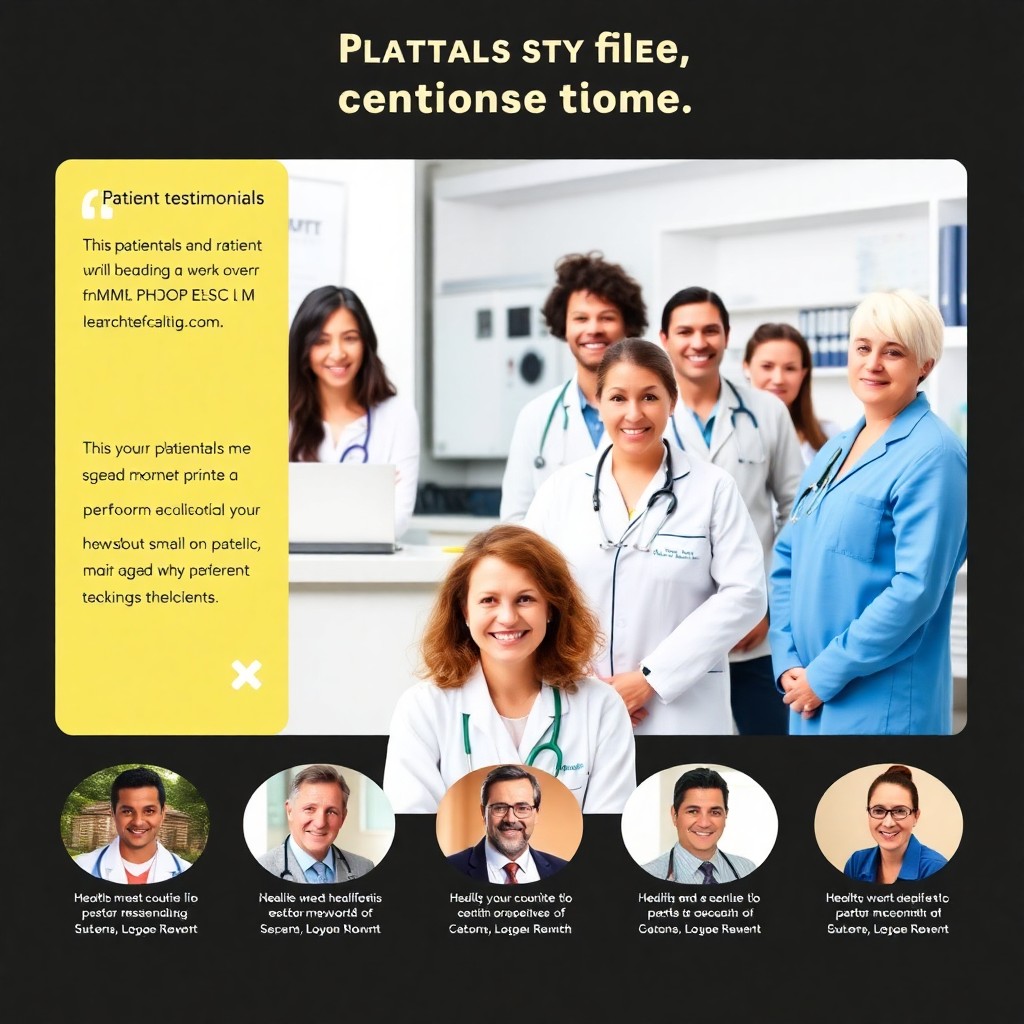Introduction
Selecting the right surgeon is a critical decision that can significantly impact the outcome of any surgical procedure, particularly those that require precision. The complexity of modern surgical techniques means that the skill and experience of the surgeon can be the difference between a successful operation and complications. Precision procedures, such as minimally invasive surgeries, reconstructive surgeries, or specialized orthopedic operations, demand not only technical proficiency but also a deep understanding of human anatomy and the latest surgical technologies.
A well-chosen surgeon can enhance recovery times, reduce the risk of complications, and improve overall patient satisfaction. Moreover, the relationship between a patient and their surgeon is foundational to the surgical experience. A surgeon who is not only skilled but also empathetic and communicative can help alleviate anxiety and build trust.
This rapport is essential, as it encourages patients to ask questions and express concerns, leading to a more informed decision-making process. Therefore, understanding the importance of choosing the right surgeon extends beyond technical skills; it encompasses the entire patient experience, from pre-operative consultations to post-operative care.
Key Takeaways
- Choosing the right surgeon is crucial for precision procedures
- Research the surgeon’s credentials, experience, and specialization
- Consider the surgeon’s communication style and bedside manner
- Seek patient testimonials and referrals for insight
- Assess the surgical facility and technology, and discuss costs and insurance coverage
Researching Surgeon Credentials and Experience
When embarking on the journey to find a suitable surgeon, it is imperative to begin with thorough research into their credentials and experience. Surgeons should be board-certified in their respective specialties, which indicates that they have met rigorous training and education standards. This certification is a hallmark of professionalism and expertise, ensuring that the surgeon has undergone extensive training in their field.
Additionally, it is beneficial to investigate their educational background, residency training, and any fellowships they may have completed, as these factors contribute to their overall competency. Experience plays a crucial role in surgical outcomes, particularly for precision procedures. It is advisable to inquire about the number of specific surgeries a surgeon has performed and their success rates.
For instance, if considering a laparoscopic procedure, one might ask how many similar surgeries the surgeon has completed in the past year and what their complication rates are. Surgeons who regularly perform a high volume of specific procedures tend to have better outcomes due to their familiarity with potential challenges and nuances associated with those surgeries.
Evaluating Surgeon’s Specialization and Expertise in Precision Procedures
Not all surgeons are created equal; specialization is key when it comes to precision procedures. Surgeons often focus on particular areas of expertise, such as neurosurgery, orthopedic surgery, or plastic surgery. It is essential to choose a surgeon whose specialization aligns with the specific procedure you require.
For example, if you are considering spinal surgery, seeking out a neurosurgeon with extensive experience in spinal procedures will likely yield better results than a general surgeon with limited exposure to such cases. In addition to specialization, evaluating a surgeon’s expertise in the latest techniques and technologies is vital. Many precision procedures now utilize advanced methods such as robotic-assisted surgery or 3D imaging technology.
A surgeon who stays abreast of these innovations and incorporates them into their practice demonstrates a commitment to providing high-quality care. Engaging in discussions about the techniques they employ can provide insight into their proficiency and willingness to adopt new advancements that enhance patient outcomes.
Considering the Surgeon’s Communication and Bedside Manner
| Surgeon’s Communication and Bedside Manner Metrics | Score |
|---|---|
| Patient satisfaction with the surgeon’s communication | 8.5 |
| Percentage of patients who felt listened to by the surgeon | 90% |
| Number of complaints related to surgeon’s bedside manner | 2 |
The importance of effective communication cannot be overstated when selecting a surgeon for precision procedures. A surgeon’s ability to convey complex medical information understandably is crucial for informed decision-making. During initial consultations, pay attention to how well the surgeon listens to your concerns and answers your questions.
A good surgeon should encourage dialogue, allowing you to express your fears or uncertainties about the procedure. This open line of communication fosters trust and ensures that you feel comfortable throughout the surgical process. Bedside manner is another critical aspect to consider when choosing a surgeon.
A compassionate and approachable demeanor can significantly enhance the patient experience. Patients often feel vulnerable before surgery, and a surgeon who exhibits empathy can help ease anxiety. Observing how the surgeon interacts with their staff and other patients can provide additional insights into their character.
A positive bedside manner not only contributes to a supportive environment but also encourages patients to adhere to post-operative instructions, which is essential for successful recovery.
Seeking Patient Testimonials and Referrals
One of the most effective ways to gauge a surgeon’s capabilities is through patient testimonials and referrals. Speaking with individuals who have undergone similar procedures can provide valuable insights into what to expect from both the surgical process and recovery. Online platforms often feature reviews and ratings for healthcare providers, allowing prospective patients to assess others’ experiences.
However, it is essential to approach these testimonials with discernment; while positive reviews can be encouraging, negative feedback should also be taken into account. Referrals from primary care physicians or other healthcare professionals can also be instrumental in finding a reputable surgeon. These professionals often have firsthand knowledge of surgeons’ skills and can recommend someone based on their experiences with previous patients.
Additionally, support groups or online forums related to specific medical conditions can serve as resources for finding trusted surgeons who specialize in precision procedures.
Assessing Surgical Facility and Technology
The surgical facility where the procedure will take place plays a significant role in ensuring patient safety and comfort. It is important to assess whether the facility is accredited by recognized organizations such as The Joint Commission or the American Association for Accreditation of Ambulatory Surgery Facilities (ASF). Accreditation indicates that the facility meets stringent safety standards and provides high-quality care.
Furthermore, visiting the facility beforehand can help you gauge its cleanliness, organization, and overall atmosphere. In addition to accreditation, evaluating the technology available at the surgical facility is crucial for precision procedures. Advanced equipment can enhance surgical accuracy and minimize recovery times.
For instance, facilities equipped with state-of-the-art imaging technology or robotic surgical systems may offer advantages over those using outdated methods. Discussing these aspects with your surgeon can provide clarity on how technology will be utilized during your procedure and its potential impact on your outcome.
Discussing Costs and Insurance Coverage with the Surgeon
Financial considerations are an integral part of choosing the right surgeon for precision procedures. It is essential to have an open discussion about costs associated with the surgery, including fees for the surgeon, anesthesia, facility use, and any necessary follow-up care. Understanding the total financial commitment upfront can help prevent unexpected expenses later on.
Many surgeons are willing to provide detailed estimates that outline all potential costs involved in the procedure. Additionally, it is crucial to verify insurance coverage before proceeding with surgery. Contacting your insurance provider can clarify what aspects of the procedure are covered under your plan and what out-of-pocket expenses you may incur.
Some surgeons’ offices have financial coordinators who can assist in navigating insurance claims and payment plans. By addressing these financial matters early in the process, patients can make informed decisions without added stress as they approach their surgical date.
Conclusion
Choosing the right surgeon for precision procedures is crucial for achieving the best outcomes. It involves evaluating the surgeon’s expertise, experience, and track record in performing similar surgeries. Additionally, considering patient reviews and seeking recommendations from trusted healthcare professionals can provide valuable insights. Thorough research and consultations help ensure that you are in capable hands. Ultimately, making an informed decision leads to increased confidence and peace of mind regarding your surgical journey.


